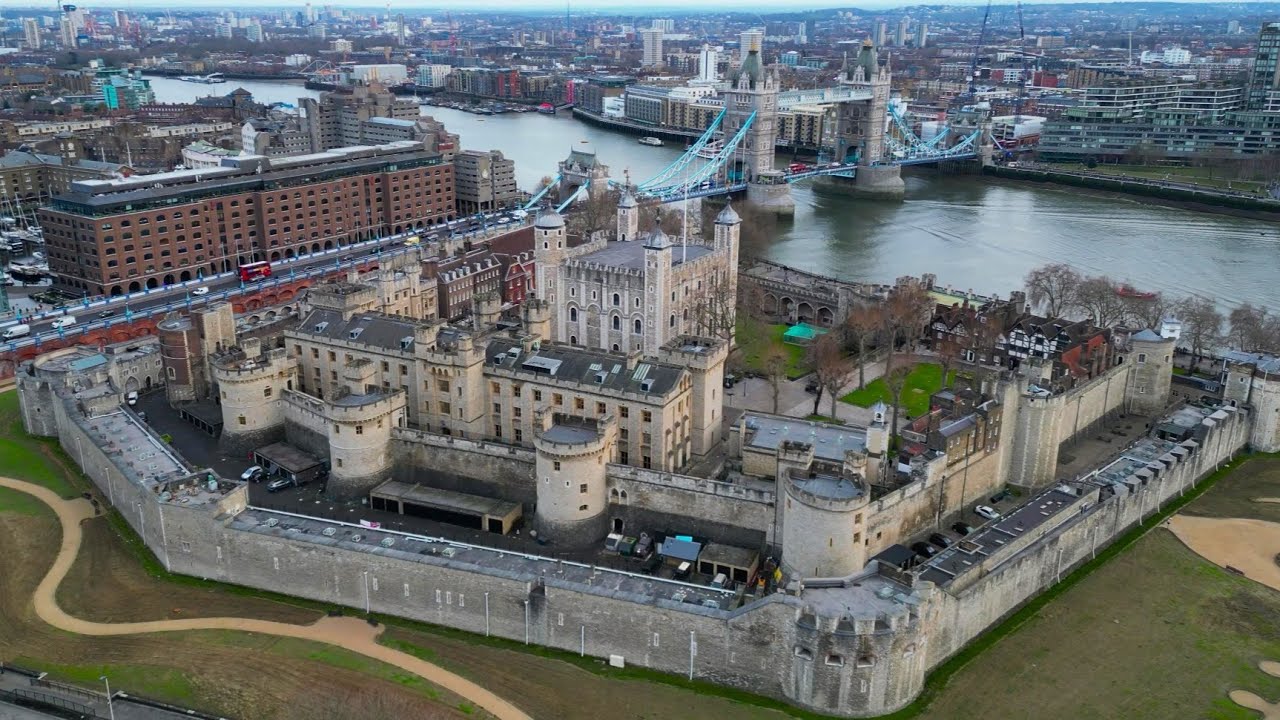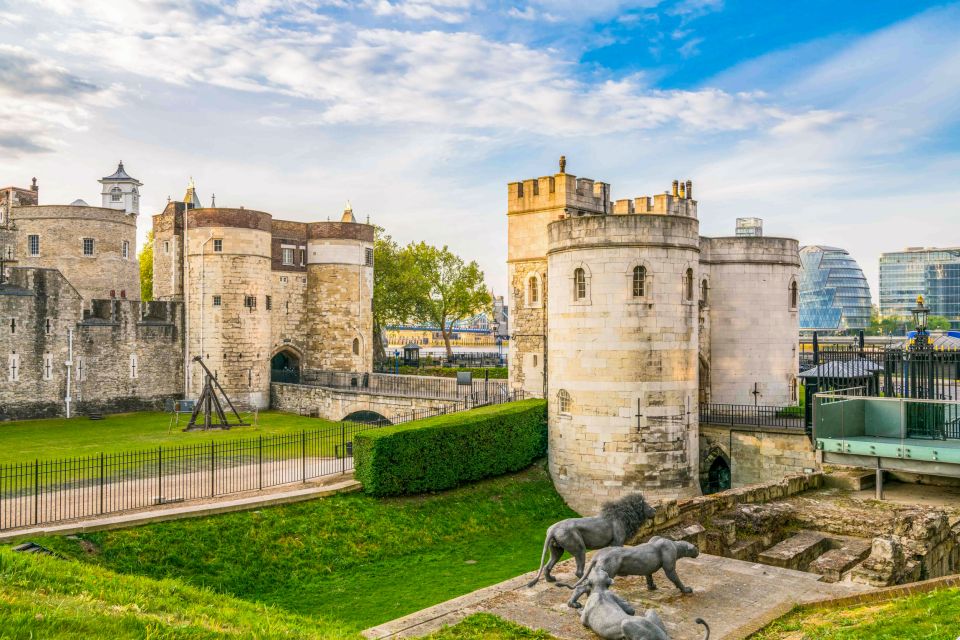Tower of London
The Tower of London stands as an iconic symbol of British history and architecture. William the Conqueror established it in the late 11th century. This fortress has served as a royal palace, prison, treasury, and home of the Crown Jewels. Its rich tapestry of events and figures makes it an enduring emblem of power, mystery, and intrigue.
Can’t wait to visit The Tower of London? Book your tour online.
Location of the Tower of London
The Tower of London sits on the northern bank of the River Thames in central London, England. Its prime location offers both a defensible position and a symbol of dominance. The castle’s proximity to landmarks, like the Tower Bridge, enhances its visibility. The exact address is Tower Hill, London EC3N 4AB, placing it within the city’s bustling heart. Surrounded by modern amenities, it retains its ancient heritage and significance.

History of the Tower of London
The Tower of London’s history spans nearly a millennium. Construction of the White Tower began in 1078, demonstrating Norman power. Successive monarchs expanded the complex, adding walls, towers, and other structures. During the medieval period, it served as a royal residence and fortress. It housed the royal mint, treasury, and menagerie, making it a hub of activity.
The Tower’s role as a prison began in the 12th century. It famously detained figures like Anne Boleyn and Sir Thomas More. Consequently, its reputation for executions and torture added to its fearsome image. The Tudor and Stuart eras continued its use as a prison and execution site. Notable events include the imprisonment of Elizabeth I and the execution of Lady Jane Grey.
In the 17th century, the Crown Jewels were housed here permanently. This added another layer of prestige and security. The 19th century saw the Tower transition from a prison to a tourist attraction. Restoration efforts preserved its historical structures, making it a site of public interest. During the World Wars, it served as a military stronghold and prison for spies.

Current status
Today, the Tower of London stands as a UNESCO World Heritage Site. Managed by Historic Royal Palaces, it welcomes millions of visitors annually. The complex is meticulously maintained, with ongoing conservation efforts preserving its ancient structures. The Crown Jewels remain on display, attracting numerous visitors eager to witness these symbols of the British monarchy.
The Yeoman Warders, or Beefeaters, continue their ceremonial roles and offer guided tours. Consequently, these tours enrich the visitor experience with historical insights and anecdotes. The Tower’s ravens, integral to its legend, are carefully tended. It is believed that their departure would signify the fall of the kingdom. Additionally, medieval architecture, combined with interactive exhibits and reenactments, provides a vivid glimpse into England’s past.
In addition to its historical and cultural significance, the Tower of London serves as a venue for various events and ceremonies. They regularly hold educational programs and special exhibitions, contributing to its role as a living museum. The Tower’s juxtaposition of ancient and modern elements makes it a unique destination. It embodies the continuity and evolution of British history.
The Tower of London continues to fascinate and inspire, standing as a testament to the resilience and grandeur of British history. We invite visitors to explore its depths, uncover its secrets, and marvel at its treasures, ensuring that this magnificent edifice remains a vital part of our shared cultural heritage.
Admission
Community features
Castle features
Video
Location
Official website
Featured listings














